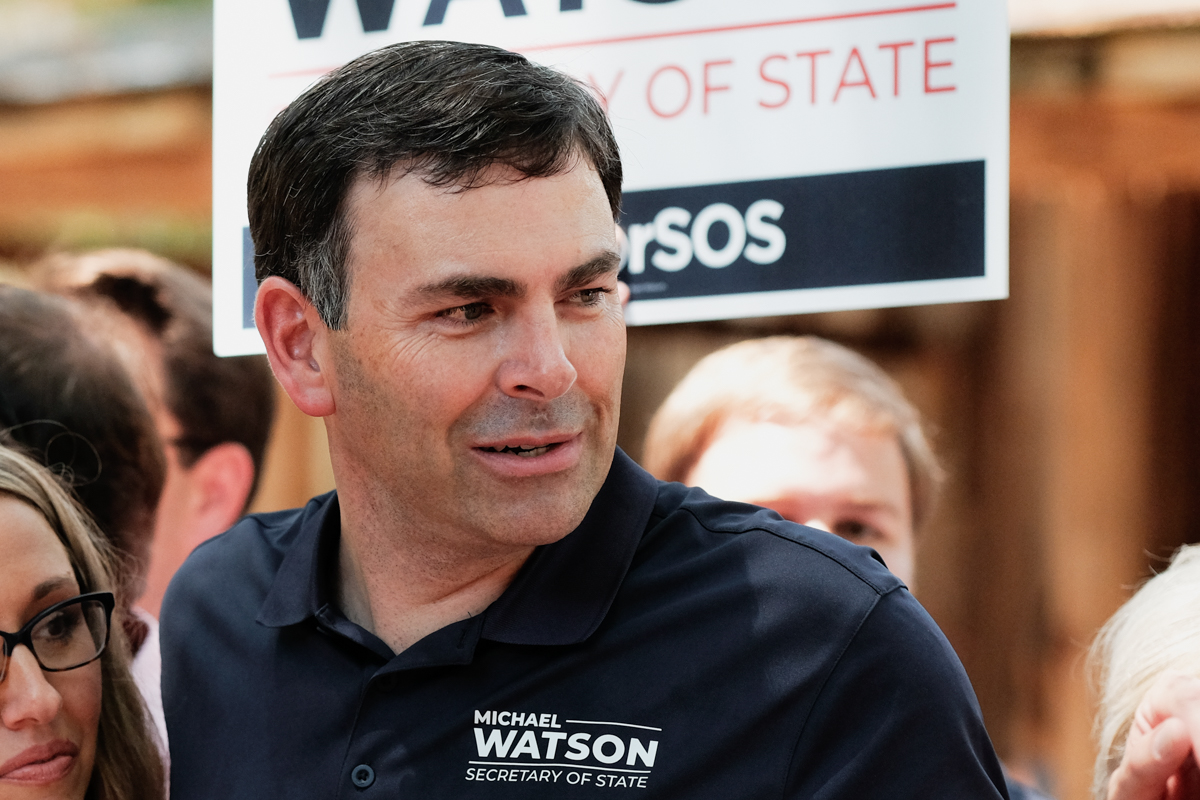For the first time in Cynthia Parham’s life, she has had to question whether or not to vote in a national election this year. The 61-year-old Black woman from Oxford, Miss., has diabetes, heart and kidney disease, so her choices in the November election are clear. She can safely vote by absentee ballot; risk her and her husband’s health and vote in-person; or forfeit her right to vote because of fears over COVID-19.
Parham is the lead plaintiff in a lawsuit filed Aug. 26, 2020, against Mississippi Secretary of State Michael Watson and Attorney General Lynn Fitch that challenges Mississippi’s current absentee-ballot laws and requests a court order to “allow all voters to vote absentee who reasonably fear exposure to COVID-19 if they vote in person.”
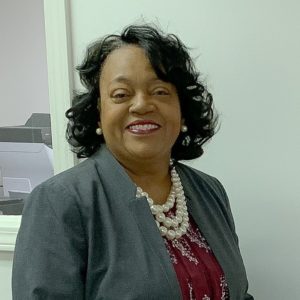
The lawsuit involves at least three individual plaintiffs, all of whom have underlying health conditions that make them fearful for their safety if they are required to vote in-person during the COVID-19 pandemic.
“Our fear is that there will be voters who are disenfranchised and unable to cast their ballot,” said Jennifer Nwachukwu, attorney for the Lawyers’ Committee for Civil Rights Under Law, one of the groups representing plaintiffs in the new lawsuit. The Lawyers’ Committee originally formed in 1963 at the behest of President John F. Kennedy to help protect the civil rights of Black Americans.
The lawsuit alleges that Watson and Fitch “have failed to take necessary steps to protect Mississippi voters’ fundamental right to vote despite the public health risks of voting in person during the COVID-19 pandemic.”
Additionally, the plaintiffs argue that the current status of voting procedures in Mississippi place an “unconstitutional burden” on voters by placing narrow and limited exemptions for absentee voting, and by requiring voters to take additional and time-consuming measures in order to authenticate their absentee ballots.
Attorney General, Secretary of State Strike Back
Disagreement over the language in House Bill 1521 began during the drafting stages of the bill in the House Elections and Apportionment Committee meetings that started in the spring, but then faced delays due to COVID-19. Watson originally urged members of the committee to include a provision that would allow all voters to cast an in-person absentee ballot while Mississippi is under a state-of-emergency declaration due to COVID-19.
Mississippi is one of only 16 states that requires an excuse to vote absentee. If qualified, voters can then choose to vote absentee in-person or through the mail. Voters who choose to vote absentee in person must do so at their local Circuit Clerk’s office between Oct. 24 and Oct. 31. All circuit-clerk employees are notaries and will notarize the ballot on site after the voter shows a valid form of identification in order to vote. Mississippi adopted a voter-identification requirement in 2012 under then-Secretary of State Delbert Hosemann, who is now the state’s lieutenant governor.
Lawmakers did not use Watson’s initial recommendation to allow in-person absentee voting during times of emergency, instead drafting a bill allowing those “under a physician-issued quarantine for COVID-19 or those caring for a dependent under a physician-issued quarantine” to be eligible to cast an absentee ballot. Since the bill’s adoption, questions about who would qualify to vote under the physician-issued quarantine exemption have arisen.
Thickening the plot, Hinds Chancery Court Chancellor Denise S. Owens ruled on Sept. 7 in Mississippi Secretary of State v. Harriett Oppenheim, a case handled by the ACLU of Mississippi, that election officials must allow people with any health conditions that make them more vulnerable to COVID-19 to vote absentee in Mississippi.
But Watson and Fitch pushed back on Sept. 8, appealing Judge Owens’ ruling to the Mississippi Supreme Court, arguing that far fewer people should be allowed to vote absentee under state law. “Any voter who has a pre-existing condition that is not itself a ‘physical disability’ cannot satisfy the statute, whether or not the voter believes that COVID-19 might make voting in-person dangerous,” their appeal claims.
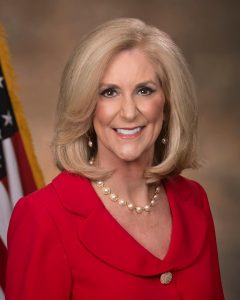
The attorney general’s brief noted that members of Mississippi’s congressional delegation, people who work during polling hours, those caring for a dependent with a qualifying disability who is hospitalized, and students, teachers or teachers’ spouses may vote absentee under Mississippi law.
Attorneys for those seeking to vote absentee to protect their health during the pandemic pushed back. “[W]e believe the right to vote extends even further and requires that absentee voting be available to all Mississippi voters who are following public health guidance and avoiding community events during this pandemic,” attorney Rob McDuff said in response.
Watson’s office sent a statement about the brief he filed with Fitch in that ACLU case: “Our office has received and reviewed Chancellor Owens’ ruling and is currently in the process of appealing it to the Mississippi Supreme Court. The appeal is an effort to receive clarification for our Circuit Clerks, so they know exactly what does and does not equate to a ‘temporary disability’ under the statute, with the ultimate goal being the consistent application of the term for every Mississippi voter.”
Parham’s lawsuit, which the Lawyers’ Committee filed on Aug. 26, likewise raises questions over current “restrictive” voting requirements in Mississippi that the plaintiffs believe will be problematic and potentially dangerous for voters during the COVID-19 pandemic, as well as “unconstitutionally vague” language in House Bill 1521.
Legislators from both major parties, including Rep. Rickey Thompson D-Tupelo, and Rep. Jim Beckett, R-Bruce, said that the bill was intended to give voters affected by COVID-19 the opportunity to vote absentee.
But the narrow language and strict interpretation, if they stand legally, could mean that the law’s effect will be minimal and do little to help voter safety during the pandemic. Plaintiffs argue that, without clarification of the language in HB 1521, even voters with “preexisting conditions that render them at higher risk for COVID-19” might not be eligible for the exemption, unless they receive an explicit physician-issued quarantine. However, because of COVID-19, the bill extends the deadline to postmark an absentee ballot to Nov. 3, Election Day, and the deadline for receipt of the ballot at the Circuit Clerk’s office to Nov. 9.
Narrow Definition of Who Can Vote Absentee
The recent legislation is troubling to Parham and others, especially in the way that it narrowly defines who qualifies to vote absentee.
Currently, Mississippi does not allow excuse-free absentee voting; therefore, Mississippians must fit into at least one of nine categories for a reason to vote absentee. Voters must sign the absentee request attesting that they are truthfully requesting ballots. Mississippi statute 23-15-753 states that “any person who shall willfully swear falsely” to eligibility to vote absentee will be guilty of voter fraud. The penalties for voter fraud include a fine of no less than $500 and no more than $5,000, or imprisonment, or both fine and imprisonment. In addition, the circuit clerk will reject the ballot.
One of the valid reasons Mississippi allows for absentee voting in the statute is having “a temporary or permanent physical disability and who, because of such disability, is unable to vote in person without substantial hardship to himself, herself or others, or whose attendance at the voting place could reasonably cause danger to himself, herself or others.” HB 1521 added language to make it clear what that disability includes and what it does not. “[T]he temporary/physical disability” (clause) shall include any qualified elector who is under a physician-imposed quarantine due to COVID-19 during the year 2020 or is caring for a dependent who is under a physician-imposed quarantine due to COVID-19 beginning with the effective date of this act and the same being repealed on December 31, 2020.”
This added language is controversial because it does not apply to someone like Parham—a woman advised to stay at home because of her underlying conditions—but who is not under doctor’s orders to quarantine, meaning she cannot vote absentee to avoid risks at the polls. Almost immediately after the bill’s passage, questions emerged about that language and who exactly would be eligible to vote absentee because of fear over COVID-19.

“There is nothing in the statute that explains what a dependent means, what caring for a dependent means, or what a physician-issued quarantine actually is,” Nwachukwu said on Sept. 9.
Christy Wheeler, co-president of the League of Women Voters Mississippi, said the language involving the physician-issued quarantine “is problematic because it is not well defined, and it’s going to leave people up in the air as to whether or not they fit that description, particularly given the penalties for lying on your application and on your ballot.”
Wheeler says that if the language in the bill remains undefined on Election Day, it could deter potential voters from using the exception for fear of the penalties if they do not qualify.
‘Do You Go to Walmart? Do You Go to Church?’
In late July, weeks after Gov. Tate Reeves signed the legislation, Secretary of State Watson asked Attorney General Fitch whether the language in HB 1521 “will make it more difficult” to vote in November. The attorney general has not yet announced an answer publicly.
Rep. Jim Beckett, R-Bruce, the bill’s author, and Senate Elections Chairwoman Sen. Jenifer Branning R-Philadelphia, both have said it was not their intention to make it harder for the citizens of Mississippi to vote. Rep. Beckett’s office said he was unable to comment for this article due to scheduling, and Sen. Branning did not respond.
The Southern Poverty Law Center, the League of Women Voters and others voiced concern over Watson’s actions in a press release announcing the lawsuit. “Secretary Watson has refused to clarify if the plain language of the law allows any voter with concerns about contracting COVID-19 at the polls to vote by absentee ballot,” the statement said. It added that the lawsuit aims to clarify language that defines who is eligible to vote under HB 1521’s extended-excuse clause and how they can access their absentee ballots.
The secretary of state’s office declined to comment about Parham v. Watson for this story due to pending litigation.
Watson has held NO press conferences at all. Other states SecStates have held press conferences. Andy Gipson and Shad White hold press conferences when their departments have issues that merit them. Dobbs hold press conferences. The heads of Corrections, DPS, MDES, and other state gov’t departments have all appeared at Tate’s press conferences.
Meanwhile, Watson has regularly appeared at rotary clubs and county Republican clubs throughout the year including virtual events during shelter-in-place.
One question is whether Mississippi voters will have to show a doctor’s note or another form of proof that declares them under a physician-issued quarantine in order to use the absentee excusal form. Without a clear interpretation of the statute for voters, Nwachukwu believes that HB 1521 will prevent citizens who fear medical complications related to COVID-19 but lack access to regular doctors and medical facilities from voting absentee.
Voter Fraud: A Legitimate Concern or an Excuse?
Secretary of State Watson, who took over the position in January after serving in the Mississippi Senate for 12 years, often calls for the use of what he calls “security measures” like voter ID laws, absentee excusal requirements and others to help “prevent fraud,” telling the Kiwanis Club of Starkville recently that Mississippi could not discuss universal voting-by-mail until its voting rolls are cleaned up. But the issue at hand for Parham and other Mississippi voters with underlying conditions during a pandemic, not universal mail voting.
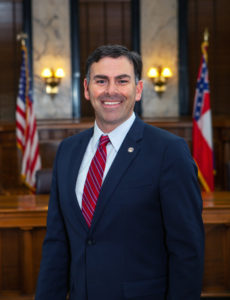
What Watson frames as security measures were part of his campaign pitch last fall. He tweeted on Nov. 1, 2019, shortly before his election: “Our next Secretary of State must be a strong defender of election security. In the legislature, I worked with Secretary Hosemann to pass Mississippi’s Voter ID law. As Secretary of State, I’ll continue to work hard to protect our state from voter fraud. #MWforSOS.”
In an interview with WLOX of Biloxi on Sept. 11, 2020, Watson cited evidence of “four or five” counties in the State that he says have “over 100% of the voting-age population shown as registered voters.” He said that means voting rolls have not been updated to account for “houses where people don’t live any more or people who have died.”
Watson implied that these situations are ripe for voter fraud. “Folks that are going to be up to no good will go get those ballots and vote for them,” he told WLOX.
Dr. Brian Shoup, associate professor in the Department of Political Science and Public Administration at Mississippi State University, cited evidence from the non-partisan Brennan Center for Justice at New York University Law School to refute what he frames as Watson’s voter-fraud canard.
“Voter fraud in the United States is almost universally a myth,” Shoup said. “It happens sometimes, but it mostly gets caught. A lot of the procedures that are being put into place (notarization requirements, in particular) aren’t going to have any statistically measurable change in detecting fraudulent ballots, largely because the (limited cases) of voter fraud get caught pretty easily.”
‘We Are Going to Have to Take Their Word’
At least some county circuit clerks believe that people requesting an absentee ballot due to quarantine do not need a doctor’s note and are not requesting them.
“We are not,” Lowndes County Deputy Circuit Clerk Pat Stanley said in a Sept. 11 interview. “We are going to have to take their word.” She plans to trust the voters when they file the absentee request, she said. “They are signing it stating (the information) is true and correct. I’m not going to argue with them on that.”
Christy Wheeler affirmed that on Sept. 9, citing her talks with circuit clerks from around the state, many of whom stated they will not require doctor’s notes.
Dr. Nathan Shrader, assistant professor of political science at Millsaps College in Jackson, said that what he called “decentralization” of absentee-ballot requests from the Secretary of State’s office, causes an even bigger problem. Some circuit clerks “are more expansive” in their interpretation of the language, he said, and then there are “others who are going to be more strict.”
“That’s a terrible way to do business when you’re trying to conduct an election,” Shrader added.
Deputy Circuit Clerk Stanley did mention that her office quizzes voters wishing to file absentee with the COVID-19 exemption: “Do you get out? Do you go to Walmart? Do you go to church?”
“If you do all of that, then we see no reason why you shouldn’t go to the polls,” Stanley said.
Notarization Requirement: ‘It’s Essentially a Poll Tax’
HB 1521 has also renewed attention to Mississippi’s notarization requirement for absentee ballots, and the lawsuit also “challenges the constitutionality” of that requirement. Under state law, voters wishing to vote absentee must have both their absentee ballot request form and the absentee ballot notarized to be valid. Mississippi is the only state with this requirement.
The only exemption is for voters using the “temporary or permanent disability” exception. While their forms do not require notarization, a witness 18 years or older must sign the form. In HB 1521, lawmakers added the “physician-issued quarantine” reason to the already-existing “temporary or permanent disability” exception, meaning that voters who wish to vote absentee because of COVID-19 will not need to notarize their ballots. Deputy Circuit Clerk Pat Stanley confirmed this exception.
While those voting absentee because of COVID-19 will not have to have their ballots notarized, other groups including “those who work during election day, those away from their county on election day, and college students studying outside of their country” will need notarized absentee forms. The plaintiffs in the lawsuit believe that the State requiring absentee voters to leave their homes at least twice during a pandemic so they can vote is irresponsible and dangerous.
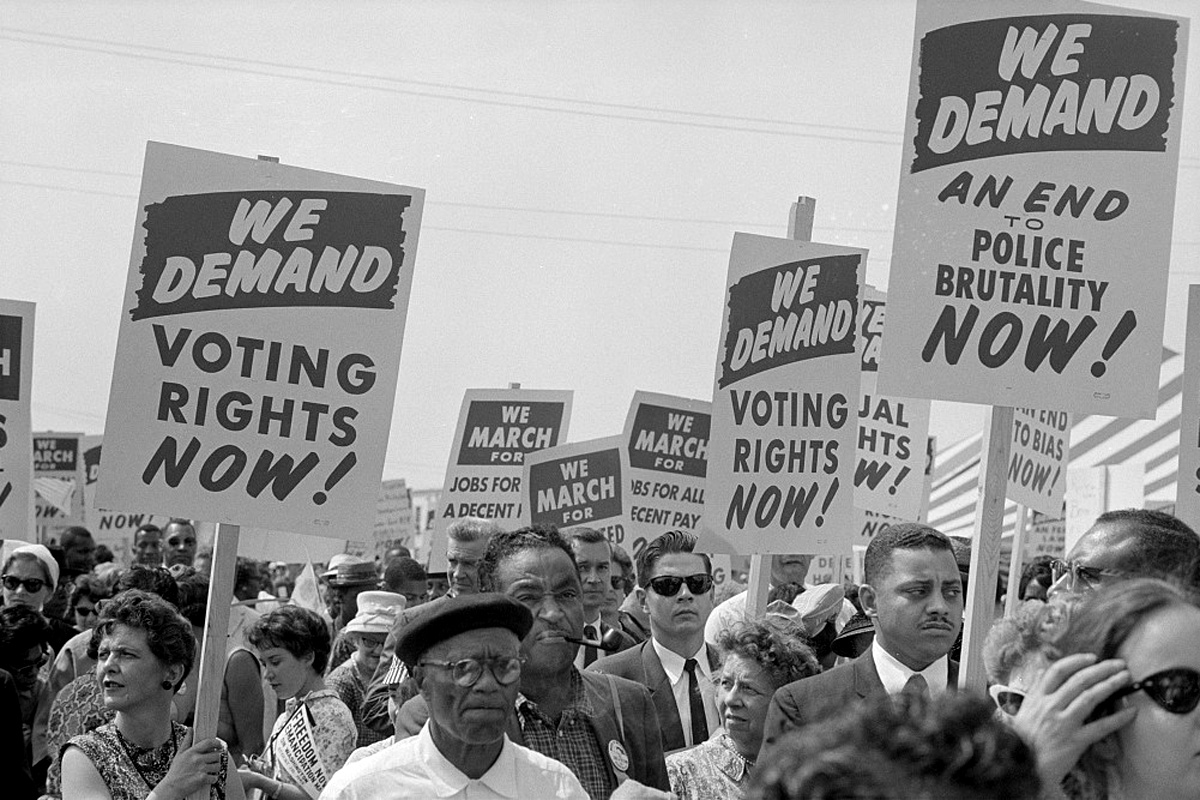
During the floor debates on HB 1521, Sen. David Blount, D-Jackson, proposed an amendment that would allow voters “to provide a copy of a photo ID” in place of the double notarization. The amendment was voted down, as Senate Elections Chairwoman Jenifer Branning defended the necessity of the notarization requirement. She said there are plenty of places, even during COVID-19, to get documents notarized.
Dr. Shoup, the Mississippi State political-science professor, responded bluntly when asked about the reasons behind the notarization requirement. “I can’t speak to the specific motives of the drafters,” he said. Historically, though, “the notary component is an attempt to make mail-in voting harder. … The notarization requirement privileges people who a) know what a notary is and b) have access to one, which is largely going to be people in urban areas who are affluent or people in rural areas where they know politically connected people.
“That is automatically going to favor a particular demographic. It essentially renders moot, for a certain percentage of the population, the ability to benefit from mail-in ballots.”
Dr. Shrader of Millsaps College went a step further. “The notarization requirement is there on the surface for one reason, but it actually exists for another,” he said. “On the surface, if you talk to certain elected officials, (they say) the notarization requirement is there to preserve the sanctity of the vote. That’s the public position. In reality, the notarization requirement is there to make it more difficult for more people to cast their votes. It’s essentially a poll tax.”
With less than two months until the November election, the U.S. District Court in the Southern District of Mississippi is likely to decide whether to interpret the state’s law in Parham v. Watson in upcoming weeks. For plaintiffs and others concerned about the safety of standing in long poll lines, the timeline for completing tasks necessary to vote is quickly fading, and some are already underway.
Several key deadlines for the Nov. 3 election happens before the end of October; most notably the last day to vote absentee in-person is Oct. 31, and the last day to register to vote is Oct. 5. Absentee request forms opened on Sept. 4, and absentee ballots become available on Sept. 21.
This is Part 1 in an MFP series on voter integrity and access in Mississippi leading up to Election Day 2020.
Also see: Solutions: How To Avoid Voter Suppression In Mississippi This Election Day

